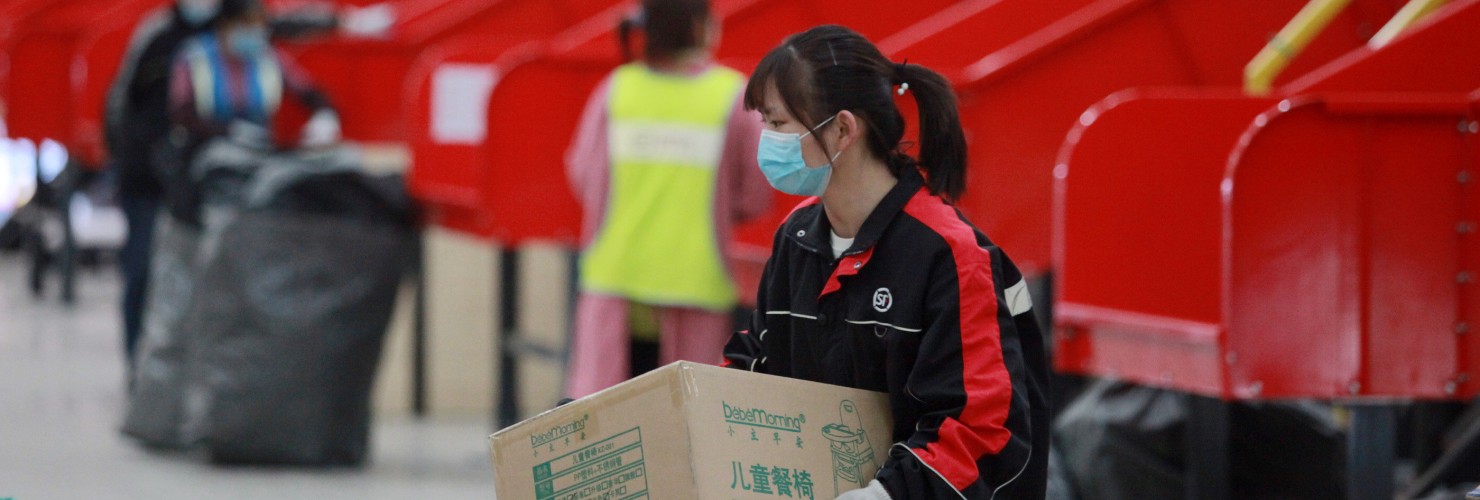

Workers’ strikes highlight cracks in great vision for domestic consumption
The facts: Singles’ Day or “Double 11”, China’s annual online shopping spree on 11th November hit new records, with the biggest retailer Alibaba's alone recording $56 billion in sales, giving retailers a much-needed shot in the arm. But the backbone of the industry, the delivery workers have gone on strike amidst wage arrears, a heatedly discussed topic on Chinese social media. As Covid-19 measures kept people at home, online shopping saw a boost and parcel delivery volume spiked to an all-time high. But revenues of courier services took a massive hit from an ongoing cutthroat price war by logistics firms jostling for market share. Unable to keep up with dumping prices of deliveries, some contractors were forced to shut, leaving workers unpaid and helpless.
What to watch: Exacerbated by the pandemic, China’s rich-poor gap is widening. The party needs to make sure that the cheap labor force that powered the country’s economic growth in the last decades is not left behind. But this also means more reforms and social benefits for the most vulnerable in a society at a time when government coffers are being squeezed to help businesses stay afloat during the pandemic.
MERICS analysis: President Xi Jinping is declaring victory in eradicating extreme poverty and making China a “moderately prosperous society” by the end of this year. The recent Fifth Party Plenum and the Chinese Communist Party’s proposal for the next Five-Year-Plan adopted at the meeting envision a new economic growth model driven by innovation and consumption for China. But the new political catchphrase of “dual circulation” also means that domestic consumption needs to pick up significantly.
“The strikes shine light on the challenges ahead. While the number of billionaires has grown since the onset of the pandemic, income for low-skilled workers has shrunk, especially in the service industry,” says MERICS analyst Valarie Tan.
More on the topic: In a recent MERICS web seminar, Valarie Tan discussed the current state of inequality in China with Scott Rozelle (Stanford University) and David Rennie (The Economist). Watch the recording here.
Media coverage and sources:
-
Sixth Tone: Amid price war and unpaid wages, couriers strike and strive
-
South China Morning Post: What economic recovery? China’s delivery drivers just along for the ride as other opportunities remain elusive
-
Freeman Spogli Institute for International Studies: Covid-19 quarantine controls and employment, education, and health impacts in rural communities
-
New York Times: China Aims to End Extreme Poverty, but Covid-19 Exposes Gap
-
Al Jazeera: China’s Singles’ Day bags record shopping revenues
This article is part of the November 12 issue of MERICS China Briefing.